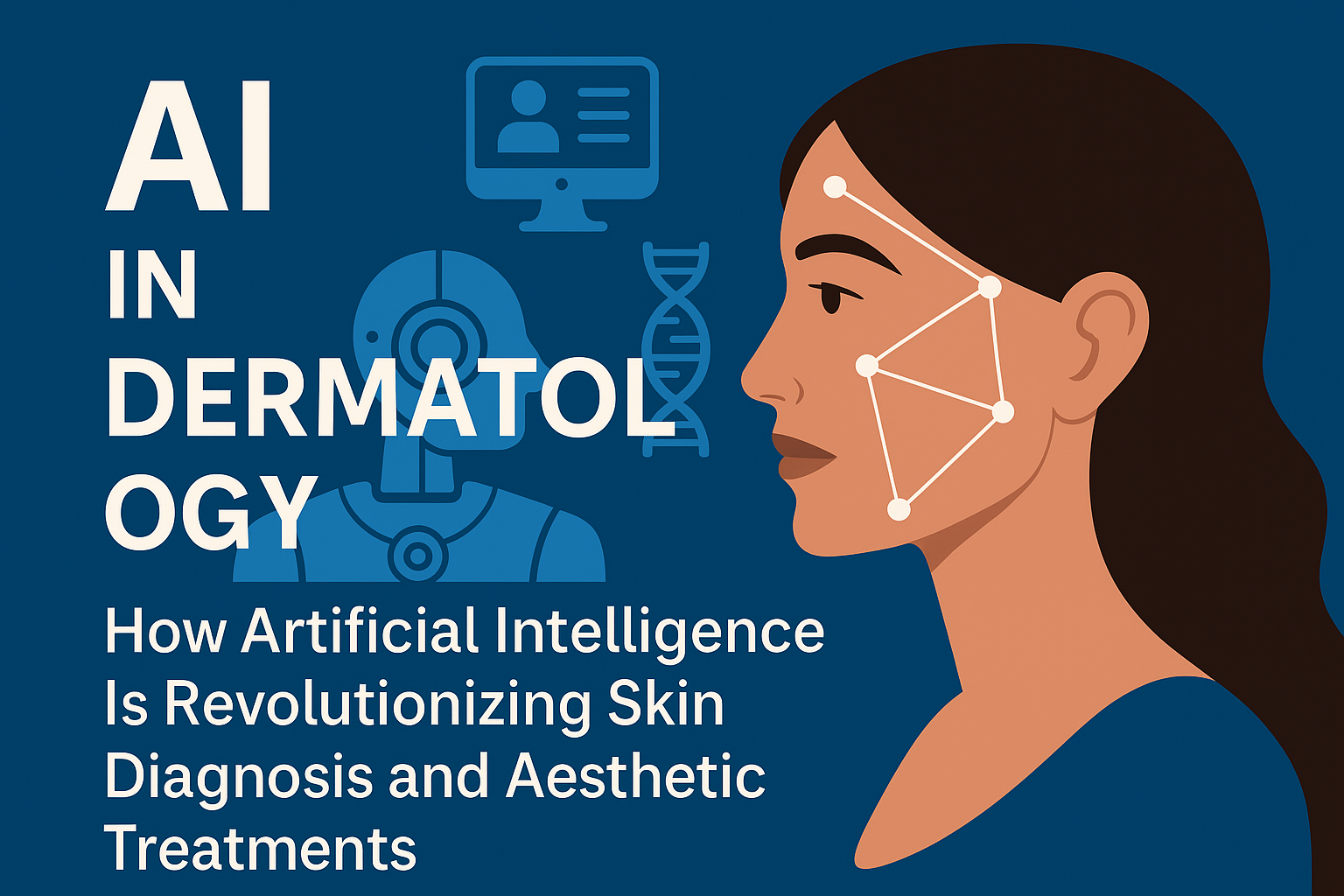Introduction
In recent years, artificial intelligence (AI) has been making bold strides across healthcare. And now, it’s entering the world of dermatology and aesthetic medicine — where the skin is no longer just a canvas, but a data-rich map.
Can AI really diagnose skin conditions better than dermatologists? Can it customize your skincare routine?
Let’s dive into the latest breakthroughs, ethical debates, and what’s coming next in AI-powered dermatology.
How AI Is Used in Dermatology Today
- Skin Cancer Detection
AI-powered tools are now being used to analyze skin lesions and moles, comparing them against vast image databases to detect early signs of melanoma and non-melanoma cancers — sometimes with higher accuracy than the human eye. - Acne & Skin Condition Analysis Apps
Smartphone apps like SkinVision, Aysa, or Google’s AI dermatology tool allow users to upload photos and get instant condition suggestions — acne, psoriasis, rosacea, etc. - Personalized Skincare Recommendations
Using AI and deep learning, platforms now analyze photos + questionnaire inputs to recommend cleansers, serums, or even in-clinic procedures based on skin type, tone, age, and problem areas. - AI in Aesthetic Planning
Advanced clinics use 3D imaging and AI software to plan:
- Botox and filler injection points
- Skin tightening procedures
- Hair transplant density calculations
Innovations in Progress
- AI-Powered Lasers that adjust energy settings based on real-time skin analysis
- Machine Learning Tools predicting aging progression or pigmentation risk
- AI Robots assisting with hair transplant graft placement (pilot-tested in the US, Korea)
Pros & Cons of AI in Dermatology
✅ Pros:
- Faster diagnosis
- Lower human error
- Wider access in remote areas
- Personalized treatment planning
⚠️ Cons:
- Data privacy risks
- Biased AI training datasets
- Cannot replace in-person physical exam
- Ethical and regulatory concerns
Global Trends & Future Outlook
- FDA-approved AI tools for skin lesion triage already in use in the US & EU
- Teledermatology integrated with AI is growing in India, especially post-COVID
- Future clinics may use AR + AI combo to simulate post-treatment results before you commit
👨⚕️ Expert Takeaway
AI is a tool, not a replacement for dermatologists. It enhances decision-making but must be backed by clinical experience, ethical standards, and human judgment.
📌 FAQs
Q1. Can AI replace dermatologists?
No. AI supports diagnosis and planning but cannot replace hands-on expertise and medical judgment.
Q2. Is AI accurate in diagnosing skin cancer?
Yes — some tools show 90%+ accuracy, but human confirmation is still essential.
Q3. Are AI skincare apps reliable?
Useful for general guidance, but don’t rely solely on them for medical advice.
Q4. How is AI used in cosmetic dermatology?
From facial scanning for Botox planning to recommending peels, fillers, and lasers — AI assists in aesthetics.
Q5. Is AI safe for patient data?
Only if the platform follows strong encryption, privacy laws, and HIPAA/GDPR compliance.


